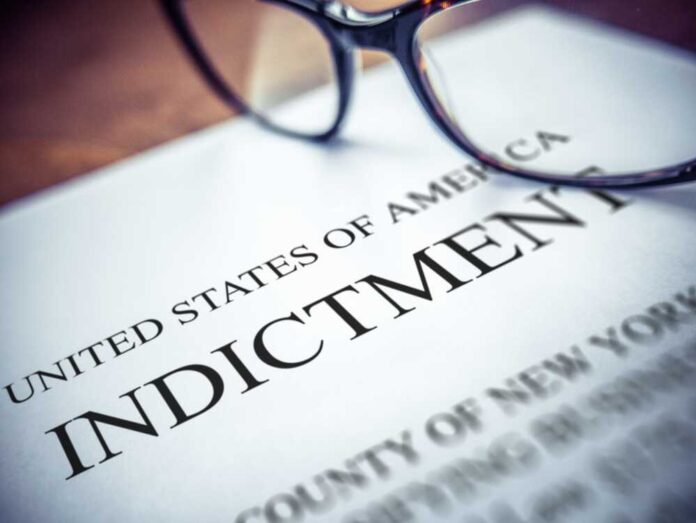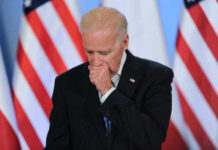
Federal prosecutors have leveled 18 charges against John Bolton, President Trump’s former national security adviser.
Bolton is accused of storing and sharing over a thousand pages of classified information with family, exposing fresh vulnerabilities in America’s national security protocols and igniting debate about double standards in the justice system.
Story Snapshot
- John Bolton was indicted on 18 federal counts for mishandling classified documents, including unlawful sharing with his wife and daughter.
- The FBI seized classified materials from Bolton’s Maryland home, once a secure facility, after a wide-ranging investigation spanning seven years.
- The case highlights concerns about accountability for former officials and potential politicization of the Justice Department.
- Bolton, a vocal Trump critic, denies wrongdoing and claims the charges are politically motivated.
Bolton Indicted for Mishandling of National Secrets
John Bolton, who served as national security adviser to President Trump from April 2018 to September 2019, now faces 18 federal counts tied to the mishandling and transmission of classified information.
The indictment, filed in Maryland’s federal court, claims Bolton shared sensitive national defense details—including intelligence on foreign adversaries and weapons of mass destruction—with unauthorized individuals, reportedly his wife and daughter.
Prosecutors say Bolton transmitted this information through personal email and messaging apps, circumventing established security protocols that safeguard the nation’s most critical secrets.
The FBI’s August 2025 search of Bolton’s Maryland home, which formerly housed a Sensitive Compartmented Information Facility (SCIF), led to the seizure of more than a thousand pages of classified documents.
The indictment reveals that, even after his government service ended, Bolton unlawfully retained and discussed this material with family members, at times for a prospective book project.
This level of document retention and unauthorized sharing—spanning from his time in office through August 2025—sets Bolton’s case apart in both scale and duration, raising new questions about lapses in internal compliance and oversight at the highest levels of power.
Accountability and the Politicization of Justice
Bolton’s indictment comes amid a fraught national debate over how former officials handle state secrets and to what extent justice is applied evenly, regardless of political affiliation.
While the Department of Justice insists there is “one tier of justice for all Americans,” critics point to the timing and target of the prosecution—Bolton being a well-known Trump critic—as evidence of possible selective enforcement.
Bolton’s legal team has pushed back, characterizing the charges as a politically motivated attack and arguing that the contested documents were personal diaries, not classified intelligence.
The DOJ, however, maintains that the evidence includes intelligence briefings and references to national security threats, making the stakes far higher than a simple record-keeping dispute.
Justice Department Statements Regarding Indictment of Former National Security Advisor John Bolton https://t.co/lrNzDZqzvi @FBIBaltimore pic.twitter.com/yLcEqSjkLF
— FBI (@FBI) October 16, 2025
The involvement of Bolton’s family adds another layer of complexity. Unlike previous cases involving the mishandling of classified material—such as those against David Petraeus and Michael Flynn—Bolton shared documents with his wife and daughter, reportedly for a book project.
This detail underscores the risks when personal interests and national security intersect, especially given that the SCIF in Bolton’s home was decommissioned after his government service ended.
These allegations, if proven, could result in each count carrying up to a decade in prison, and they reinforce concerns about the adequacy of current safeguards against insider threats.
Political and National Security Repercussions
The fallout from Bolton’s indictment is already reverberating through political and national security circles.
For many conservatives, the case revives longstanding frustrations about apparent double standards in Washington, where elite officials seem insulated from consequences while ordinary Americans face relentless scrutiny for far less.
The Justice Department’s actions are under the microscope, especially as the country seeks to rebuild constitutional norms and restore trust in government institutions after years of overreach and politicized enforcement.
Legal experts warn that, regardless of the verdict, the case will set a precedent for how future classified information breaches by high-ranking officials are prosecuted.
In the short term, Bolton and his family face steep legal, financial, and reputational risks. In the long term, the intelligence community may tighten protocols, and lawmakers could push for further reforms to prevent similar breaches.
Meanwhile, the public—already skeptical after years of government mismanagement—sees in this case ample evidence that accountability at the top is still far from guaranteed.
The handling of Bolton’s case will serve as a bellwether for whether the rule of law truly applies to all, or whether political calculation continues to erode the nation’s founding principles.
Sources:
Ex-national security adviser John Bolton indicted in classified documents case (WHRO)
Bolton charged with mishandling classified information (Denver Gazette)
Ex-national security adviser John Bolton indicted in classified documents case (OPB)
John Bolton indicted on 18 counts for mishandling classified information (The Federalist)



















